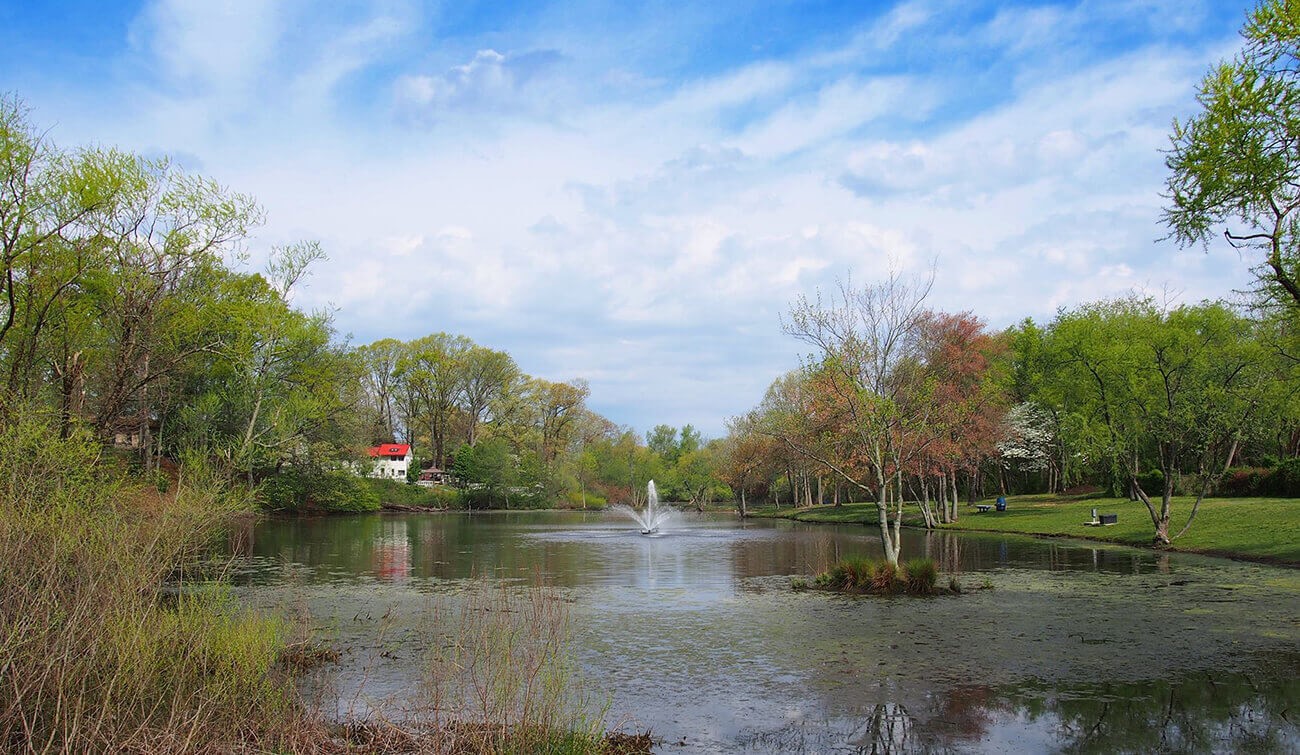Using empathy, teamwork, and leadership to teach our students life lessons without using textbooks


When people think of New Jersey, they often have visions of crowded highways, packed beaches, the New York City skyline, or MetLife Stadium in East Rutherford. For our northern part of the state, this is true. But for a good portion of the southern part that borders the Delaware River and Bay, it is a very different scene. Covered in lush vegetable farms, farm and dairy animals peeking over wire fences, country roads, and deep dense forests full of vibrant flora and fauna; life in Southern New Jersey is quite different from the Jersey that most have come to know through television and movies.
This is also true for our educational experiences. We have had our own sets of challenges, and, perhaps because our nearest neighbor is a mile down the road, our way of life is more dependent on each other than it would appear. It sounds very “Little House on the Prairie” but this is how we live. We have pockets of urbanity where farms used to stand, that’s true, but at the heart of it all, building a culture of learning, not only with our students but with our families, is a necessary part of the community’s success.
Today, I teach in Gloucester Township, in a town called Blackwood. It has a bustling downtown and a growing population of diverse learners. Urban areas have long been recognized as places that represented many cultures, but there are growing Latino and Middle-East Asian communities in rural areas, especially where I teach. Many of these families seek blue-collar jobs and agricultural positions as did their families before them. Though diversity is welcome by many in the community in which I teach, it does require traditional school systems to change some of the routines and procedures that have long been the norm.
Communication can sometimes be viewed as an obstacle. As we know, the connection between the school and the family is vital for students’ success. When important documents are sent home, rural districts have to accommodate the growing diverse populations that they serve. Finding translation services can sometimes prove to be an obstacle on a school-wide or district-wide level to meet the needs of our non-English speaking families. I have to commend our teachers who understand the need to communicate with all of their families. Many of our teachers have researched the best translation applications and have taken it upon themselves to translate documents to communicate with their families.
Our teachers, especially within Loring Flemming, have made a concerted effort to foster diversity and inclusion. We have facilitated events like Hispanic Heritage Day Celebration and Eat for Peace, both family events that celebrate the diversity of our students and families by relying on our families to educate the community about their cultures using music, dance, and food. The changing demographic of our rural communities should be welcomed and celebrated and should begin within our schools.
The strength of rural communities lies within its residents. The connection between small business owners, first responders, laborers, and our schools is strong. Their children are our students; many families join the Parent Teacher Associations as partners with our teachers. Our schools are often used as conduits for social programs within the community. School buildings are where the residents vote, put on charity events, or clothing drives for those in need. The Gloucester Township community is a shining example to nearby communities looking to support their residents and build capacity.
In my classroom, we focus a lot of our time analyzing how empathy is a necessary trait for a successful society. Many events are sponsored by either the township, the PTA, or small businesses within our school community. One such example is the beautiful Dr. Martin Luther King (MLK) Day of Service put on annually by Gloucester Township. The opening remarks are held at one of our schools. A student from each school is recognized by the township for their work within the school and the community. Food vendors from within the community cater the morning event. A team of parents, police officers, and other first responders coordinate the event. Teachers, students, and families from all over the district come out by the hundreds to participate in dozens of community service. Every year I bring my leadership group, Young People of Character, to help out in the activity. We all wear our YPOC shirts, printed by a small business within Gloucester Township. MLK Day of Service is our capstone project for the year.
Our rural centers don’t need to begin with something big if they are just starting out building a community-to-school partnership. This is just one example of how a partnership can build over time, into a community that is engaging, encouraging, and accepting of all its families and their students. We look for special ways to include every member of the community. It’s not easy; it takes time, effort, planning and complete buy-in by the residents, businesses, and organizations. Community outreach is a great example of how a rural community like mine, uses empathy, teamwork, and leadership to teach our students life lessons without using textbooks or assessments, but rather our hands and our hearts.
—
Angel Santiago is an elementary school teacher at Loring Flemming Elementary school in Blackwood, New Jersey. Santiago is the 2020-2021 New Jersey State Teacher of the Year. His passion for education is rooted in fostering strong relationships with his students, their families, his colleagues, and the communities in which he serves. Angel believes that a diverse workforce and engaging students in community service, are instrumental in closing the equity gap in many communities.
Angel graduated from Fairleigh Dickinson University, a member of both Phi Theta Kappa and Kappa Delta Pi Honor Societies. He holds a Master’s degree in Education and a Bachelor’s degree in Humanities. He has taught his entire professional career in Camden county. He began teaching in the Lindenwold Public Schools, and in 2013 moved to Gloucester Township Public Schools.